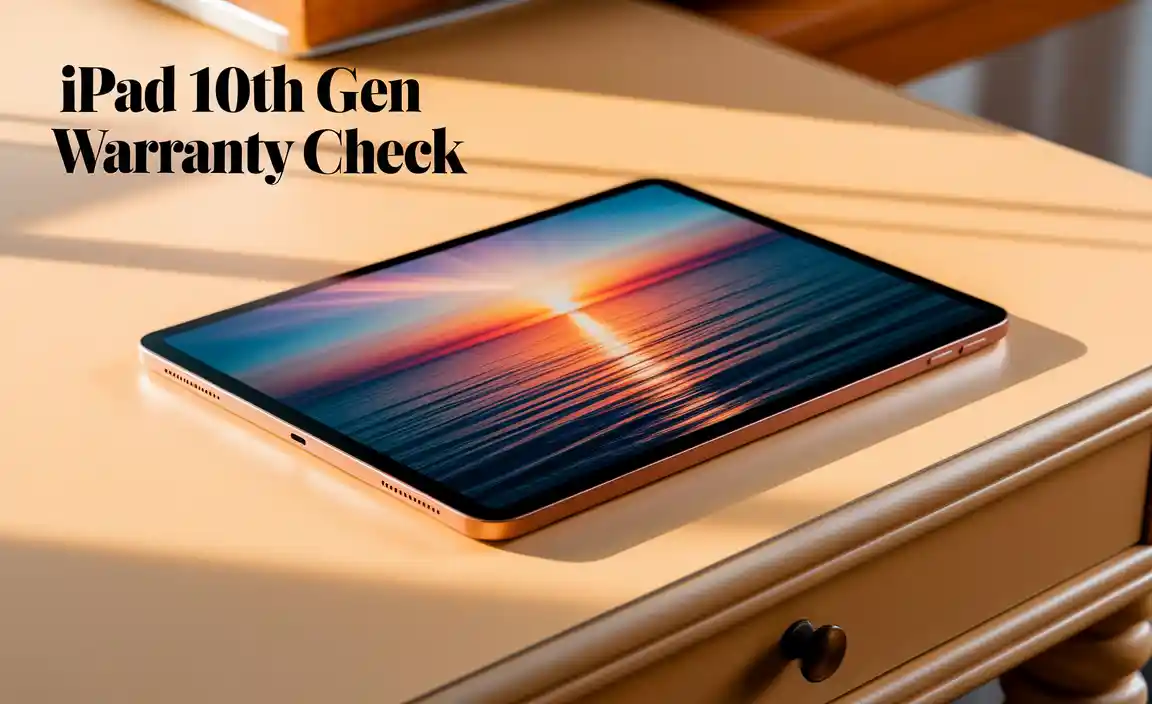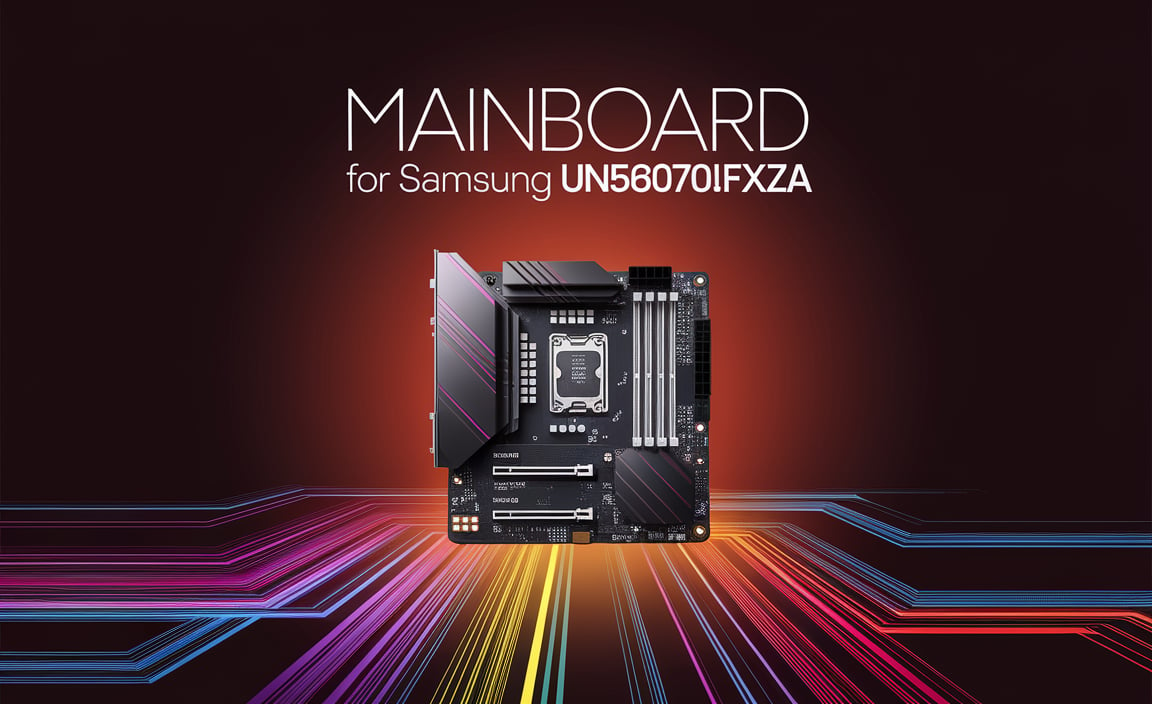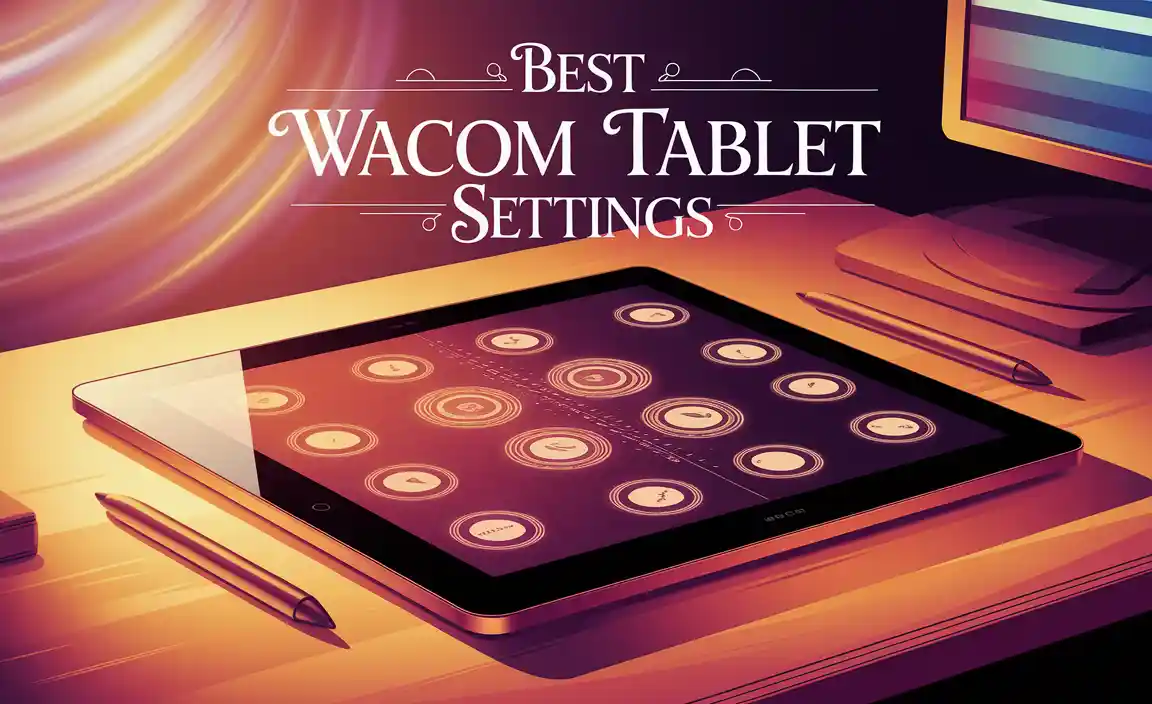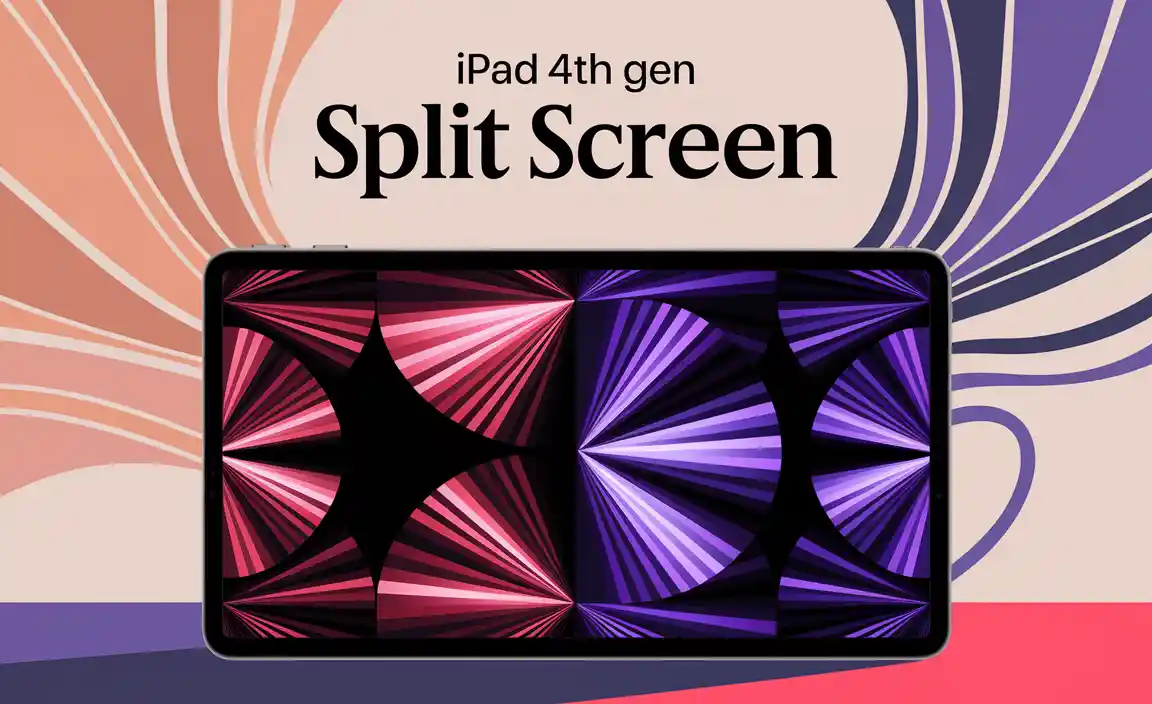Have you ever felt like your workspace is a bit cramped? Many people today work with more than one screen. What if I told you that a Surface Pro 7 can solve this problem for you? This amazing device isn’t just a tablet; it can turn into a powerful multi-monitor setup.
Imagine playing a game on one screen while chatting with friends on another. Or maybe you enjoy watching videos while you type away on your reports. With a Surface Pro 7, this can all happen seamlessly.
Fun fact: Did you know many professionals find that using multiple screens can boost their productivity by almost 50%? That’s right! Having more room to work means you can get things done faster and easier.
In this article, we will explore how to set up a Surface Pro 7 multi-monitor setup. We’ll share simple steps and tips to make your workspace more efficient. Are you ready to unlock your Surface Pro 7’s full potential? Let’s dive in!
Surface Pro 7 Multi-Monitor Setup: Enhance Your Workspace
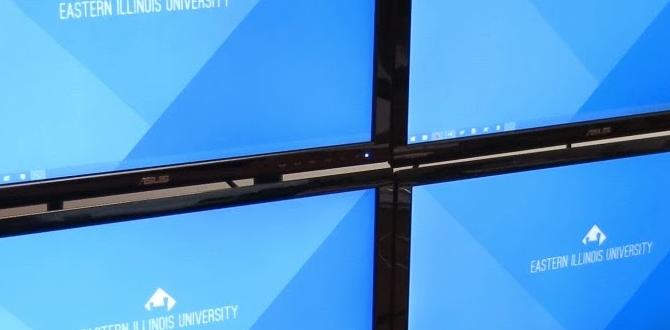
Surface Pro 7 Multi-Monitor Setup
Want to enhance your workspace? A Surface Pro 7 multi-monitor setup can do just that! You can connect multiple displays, making it easier to work on different tasks. Imagine the freedom of having your emails on one screen and a video call on another. Using compatible adapters and USB-C features, you can easily expand your screen real estate. This setup not only boosts productivity but also makes multitasking much simpler. Enjoy a more organized and efficient work environment today!Required Accessories for Multi-Monitor Setup
List of essential cables and adapters. Recommended docking stations for optimal performance.Getting your Surface Pro 7 ready for a multi-monitor setup is like preparing for a big party—everyone needs an invite! First, you need some essential cables and adapters. The most important ones are HDMI or DisplayPort cables. They’re like the magic threads connecting your devices. Next up are docking stations. These little wonders make it easier to connect multiple monitors without fuss. They’re the VIP areas for all your gadgets!
| Accessory | Purpose |
|---|---|
| HDMI Cable | Connects to monitors |
| DisplayPort Cable | Alternative video connection |
| USB-C Adapter | For older monitors |
| Docking Station | Central hub for connections |
With these accessories, you’ll transform your workspace into a display haven. Remember, a multi-monitor setup can boost productivity by up to 50%. Now that’s a fun fact and a serious productivity booster!
Step-by-Step Guide to Setting Up Multi-Monitor with Surface Pro 7
Detailed instructions on connecting multiple monitors. Configuration tips for display settings in Windows.Getting your Surface Pro 7 to play nice with multiple monitors is easy! First, connect your monitor using an HDMI or USB-C cable. Next, right-click on your desktop and select “Display settings.” Here, you can choose how you want your screens to work together—“Duplicate” shows the same thing on both, while “Extend” gives you more space for your apps. It’s like having extra desk space! Just remember to adjust the resolution so everything looks sharp. For a quick reference, check this out:
| Connection Type | Setting | Resolution |
|---|---|---|
| HDMI | Extend | 1920×1080 |
| USB-C | Duplicate | 2560×1440 |
And there you go! Your Surface Pro 7 and monitors are all set to take on the world. Just think of the productivity—you can watch cat videos and work at the same time. Win-win!
Configuring Display Settings for Optimal Use
How to arrange displays and set primary monitor. Tips for adjusting resolution and scaling for each monitor.Setting up your Surface Pro 7 with multiple monitors can be fun! Start by arranging your displays. You can do this in the “Display Settings” menu. To set your main monitor, select the screen you want and check “Make this my main display.” For clear images, adjust resolution and scaling for each monitor. Try these tips:
- Choose the correct resolution for your display size.
- Set scaling to 100% for sharper text.
- Use the same scaling across screens for easier viewing.
Every monitor is different. Finding the right setup makes your work easier and more fun!
How to set the primary monitor on Surface Pro 7?
To set the primary monitor, go to “Display Settings,” choose your desired screen, and click “Make this my main display.”
Troubleshooting Common Issues
Identifying and fixing connectivity problems. Dealing with display detection issues.Setting up a multi-monitor system can be tricky. First, check all cables. If a monitor isn’t working, it may be as simple as a loose plug. Use the Surface Pro 7’s settings to find display options. If your monitor is hiding like it’s playing hide-and-seek, try the “Detect” button. For those stubborn monitors, sometimes a restart works wonders. Remember, even technology needs a nap!
| Issue | Solution |
|---|---|
| Monitor not recognized | Check cables and use “Detect” in settings |
| Flickering display | Update drivers and restart |
| Wrong resolution | Adjust settings specifically for each monitor |
Best Practices for Using Surface Pro 7 with Multiple Monitors
Productivity tips for maximizing efficiency. Recommended applications for a seamless multimonitor experience.Using your Surface Pro 7 with multiple monitors can boost your productivity like a double espresso! First, arrange your screens so important info is easy to see. Use apps like Microsoft Teams for meetings and Todoist for tasks, keeping everything organized. Here’s a quick table of must-have apps:
| App | Purpose |
|---|---|
| Microsoft Teams | Video calls and collaboration |
| Todoist | Task management |
| Notepad++ | Code editing |
| OBS Studio | Screen recording |
Mixing screens with these tools can make multitasking feel like a walk in the park— or maybe a race! Keep everything on one screen focused and use the other for distractions like cat videos (for breaks, of course). Enjoy your setup!
Comparing Surface Pro 7 with Other Devices for Multi-Monitor Use
Surface Pro 7 versus other Surface models. Advantages and limitations compared to traditional laptops.When it comes to connecting your Surface Pro 7 to multiple monitors, it’s a mixed bag of fun and confusion. Compared to other Surface models, like the Surface Book, the Pro 7 does pretty well, but it’s not a heavyweight champion. Traditional laptops often boast more ports and power. They can sometimes handle extra screens like a boss! But hey, the Surface Pro 7 is super portable. So, while it may lack a few features, it’s like that friend who brings snacks to the party—it’s still welcome, but not the main attraction.
| Device | Max Monitors | Port Type | Portability |
|---|---|---|---|
| Surface Pro 7 | 2 | USB-C, Mini DisplayPort | High |
| Surface Book | 3 | USB-A, USB-C, Mini DisplayPort | Medium |
| Traditional Laptops | Varies | Multiple | Low to Medium |
User Experiences and Reviews
Highlighting user testimonials and case studies. Common feedback on Surface Pro 7’s performance in multimonitor setups.Users rave about their experience with the Surface Pro 7 in multi-monitor setups. Many say it’s like having a personal assistant at their fingertips. One user reported, “My Surface Pro 7 made my work feel like a breeze on two screens!” Feedback often highlights its smooth performance, even with heavy tasks. A few users joked that they were “multitasking wizards” thanks to its speed. Overall, users feel happy and less stressed while juggling tasks. Here’s a quick snapshot of their thoughts:
| User Feedback | Rating |
|---|---|
| Performance | ★★★★★ |
| Setup Ease | ★★★★☆ |
| Portability | ★★★★★ |
Conclusion
In conclusion, setting up a Surface Pro 7 with multiple monitors enhances your productivity. You can easily connect additional screens for more workspace. Remember to check your display settings for the best results. If you’re curious about more tips or need help, explore online guides or videos to get started. Enjoy your upgraded workspace!FAQs
What Types Of External Monitors Are Compatible With The Surface Pro 7 For A Multi-Monitor Setup?You can use different types of monitors with the Surface Pro 7. It has a USB-C port and a Mini DisplayPort. You can connect monitors that have these ports. Some popular types are HDMI and DisplayPort monitors. Always check the monitor’s connection type to make sure it fits!
How Can I Connect Multiple Monitors To My Surface Pro 7 Using Various Ports And Adapters?You can connect multiple monitors to your Surface Pro 7 by using its USB-C and Mini DisplayPort. First, check if your monitors have HDMI or DisplayPort connections. You might need adapters, like USB-C to HDMI. Plug the monitors into the ports and turn them on. Then, go to your display settings to arrange how you want to use them.
What Settings Should I Adjust In Windows To Optimize The Display For A Multi-Monitor Configuration With The Surface ProTo make your Surface Pro work well with extra screens, we can change a few settings. First, right-click on the desktop and choose “Display settings.” Here, you can see all your screens. Make sure to select “Extend these displays” to use them all together. You can also adjust the screen resolution to make everything look clear. Finally, rearrange the screens in the settings so they match how they are on your desk.
Are There Any Limitations Regarding Resolution Or Refresh Rates When Using Multiple Displays With The Surface ProYes, there are some limits when using multiple screens with the Surface Pro. You might not get the best picture quality on all displays. Some screens might not show as many colors or details. Also, refresh rates, which tell how smoothly things move, can be lower on extra screens. This means games or videos might not look as good on all displays.
What Accessories, Such As Docking Stations Or Usb-C Hubs, Are Recommended For Enhancing A Multi-Monitor Experience With The Surface Pro 7?To improve your multi-monitor setup with the Surface Pro 7, you can use a USB-C hub. This hub lets you connect multiple monitors to your tablet easily. A docking station is another good choice. It connects to your Surface Pro and gives you extra ports for keyboards, mice, and monitors. Using these accessories makes it simple to work with more screens!
Your tech guru in Sand City, CA, bringing you the latest insights and tips exclusively on mobile tablets. Dive into the world of sleek devices and stay ahead in the tablet game with my expert guidance. Your go-to source for all things tablet-related – let’s elevate your tech experience!
